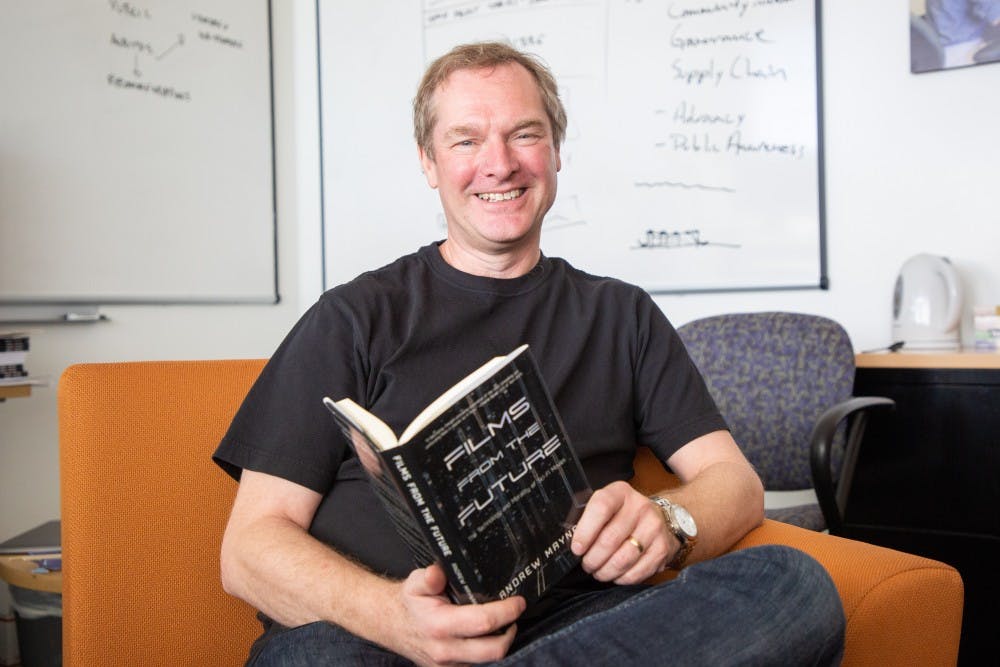In a universe filled with flying cars, vibrantly colored space creatures and childlike-wonder, Andrew Maynard, professor in the School for the Future of Innovation in Society and director of the ASU Risk Innovation Lab, contributed to the world of science fiction with the release of his new book.
In "Films From the Future: The Technology and Morality of Sci-Fi Movies," Maynard weaves his knowledge of science and technology with the explorative nature of science fiction movies. Exploring the possibility and morality of movies such as Jurassic Park, Limitless and Ghost in the Shell, "Films from the Future" is the topic behind Maynard’s first entertainment-based book.
“The whole aim of good writing is to create something that someone would want to read,” Maynard said. “There’s no use in writing something that is too hard, too complicated, too boring, and I had a lot of fun with this.”
Maynard will lead a discussion about his book at the Alamo Drafthouse Cinema on Nov. 27.
His writing process began with one thing: an idea. With science fiction movies in mind, he wanted to create a book that rode the line between academic and entertaining. However, when the book was finished, Maynard said that getting it published was an interesting experience.
“I had just started looking for an agent when I got an email from a publishing company, Mango, that essentially said ‘Strange question, but would you ever consider writing a book?’ and I sent back ‘Strange answer, but I’ve just written a book and am looking for a publisher,’ and it took off from there,” Maynard said.
Working in class to perfect his book, Maynard said that he was extremely thankful for his students.
As the source material for one of his classes, students read and discussed "Films from the Future" throughout the course. Among these students was Nicole Mayberry, a recent graduate of human and social dimensions of science and technology.
“The class was great," Mayberry said. "He asked us if we had any feedback in some of the chapters that had to deal with political theory, which is something that I’ve studied.”
Mayberry assisted Maynard in editing and revising some of his chapters, an experience she found extremely gratifying due to Maynard’s writing and overall attitude.
“It was really encouraging for a faculty member to take your expertise into account, but that’s Andrew. He was so open to ideas throughout the whole process and took his students seriously in a way you wouldn’t expect from other professors,” Mayberry said.
Although his students contributed greatly to the process, Maynard said that his greatest thanks go to his wife as he occasionally danced with doubt as he wrote the book.
“My wife especially got me through the process. Whenever I had a moment of defeat or anything like that, she really pushed me and assured me that yes, the book is good and yes, I could do it. I’m so thankful for that,” he said.
Maynard prioritized the accessibility of his book for scholars and everyday readers. Elizabeth Garbee, a science and technology policy ASU graduate who helped edit the book, said Maynard accomplished his goal.
“I think the people who would really benefit from reading this book are people who are like my mom, who doesn’t actually have a lot of experience in technology or science fiction,” Garbee said. “This book opens up an opportunity for all kinds of people to start a conversation they may not have had otherwise.”
Reach the reporter at kreinha3@asu.edu and follow @ReinhartKatelyn on Twitter.
Like The State Press on Facebook and follow @statepress on Twitter.




